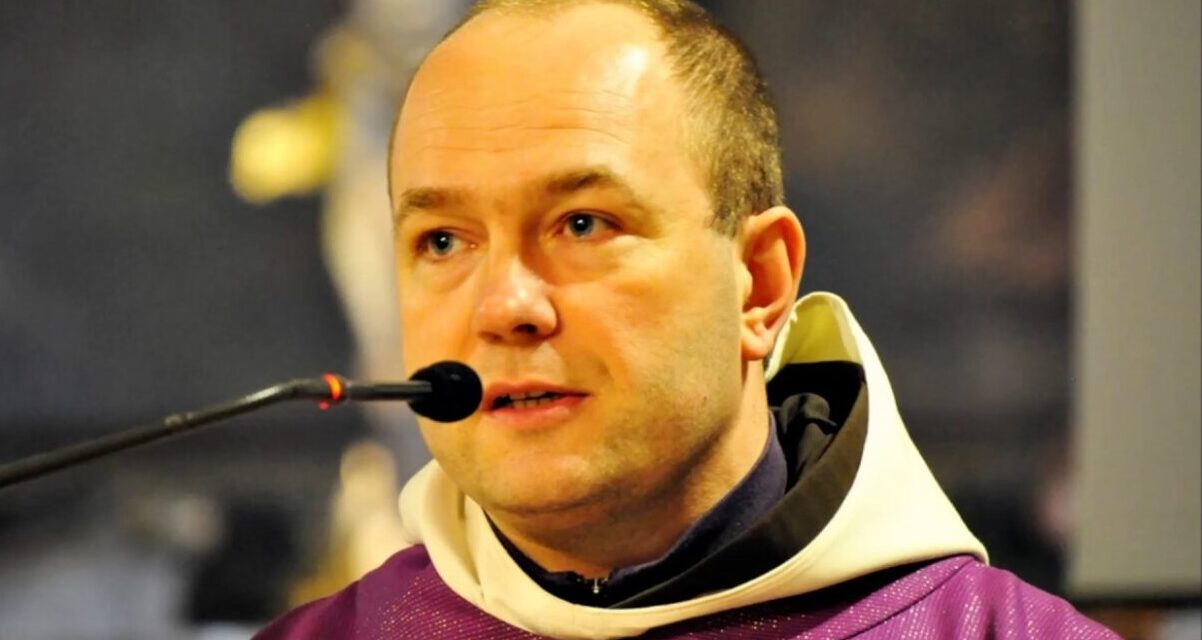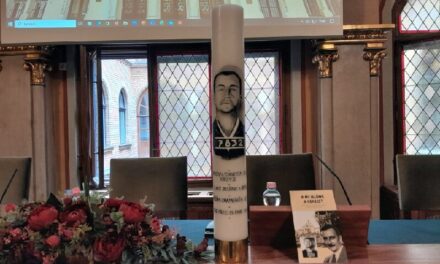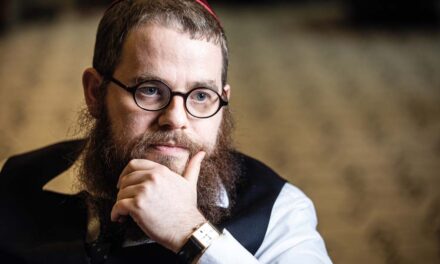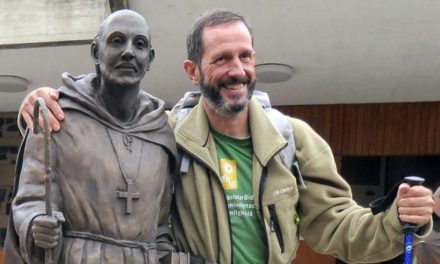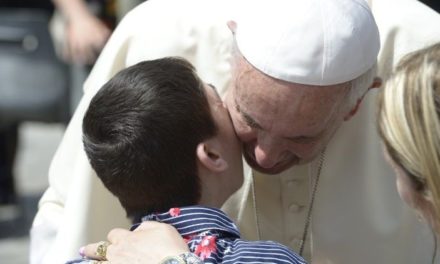Watching mass online is like watching a cooking show instead of eating a delicious lunch: it's certainly convenient, but we won't get enough of it.
The Franciscan monk Kálmán Peregrin gave an Advent interview to the Mandiner, in which he talked with the head of the Franciscan church in Pest about Christian endurance, expanding pastoral ministry and awakening the sleeping Christ.
"We follow our traditions when it comes to nativity scene, and rather we prepare in a special way in our spiritual life. On the occasion of the anniversary, those Catholics who make a pilgrimage to the nativity scene set up in a Franciscan church can receive a complete farewell by praying there. With this, we also confess that the effect of grace is stronger than sin, and that the wounds of sin can be healed.
"Historians point out that in the time of Francis, there was already a custom of nativity play, his greatness was that he brought this custom into the church and combined it with a living relationship with Jesus," said the father.
"The legend that describes the Christmas mass he organized reports that when Francis took the child Jesus in his hands, many people saw that the child came to life. And this really happened, because Christ rose to new life in the hearts of many. This is a Franciscan innovation: to put folk customs at the service of the relationship with God," he said.
The experience of the Franciscan monk is that Christmas has become empty among those who do not practice their religion.
Just as Christianity is starting to fade from cultural self-awareness, it is also fading from the world of holidays, and it is becoming more and more difficult for many to be with their families. The standard and emphasis of celebration in society is quite different, and this makes it difficult for people to get to the point.
"The situation is better in Christian communities, there is no need to explain the nature and significance of Advent, it is part of the lives of churchgoers as if by drift. It is interesting to see how popular the Rorates have become in our cities: in many places, the churches are full during the Advent morning mass, even the rather large churches! Perhaps we are witnessing the unfolding of a new culture of faith".
The father also explained how this culture can be grasped: "On the one hand, in the more consciously lived faith life, in the new forms of spiritual exercises and spiritual days, on the other hand, I also see that many people come to churches during the day just to worship the sacraments. In these communities, there are strong threads of belonging and mutual reliance, which - if the priest grasps them well - can also be used to invigorate the life of faith".
According to Kálmán Peregrin's view, church communities began to decline in many areas, in parallel with social phenomena. The church has experienced something similar many times.
"It's unusual for us, because we haven't seen anything like this ourselves, but previous centuries have resulted in so many similar phenomena, so we don't have to be surprised. The coronavirus epidemic has clearly set back the practice of religion, a measurable percentage of believers crumbled when religiosity was converted into a kind of online presence, which is worrying. After all, watching mass online is like watching a cooking show instead of eating a delicious lunch: it's certainly convenient, but I won't get enough of it. I can experience a personal encounter with Christ in the Holy Communion, in the community of believers, through the service of the priest. At the same time, the transformation of communities can be observed, which has many positives".
As an example, he told me that even as a child I went to Mass at Ferenciek square, and that at that time he did not see too many young people on weekdays, although the pews were full. Now there are a quarter as many at a weekday Mass, but young people are also noticeably present, not just the elderly. Many people discover the joy of attending mass beyond the Sunday mass, in our churches in Pasarét and Pest, the ratio of men and women is almost equal in the liturgies or in the confessions.
The Franciscan monk also talked about how to prepare for the meeting with Jesus, since we are waiting for his birth in Advent.
He said that the church provides many good practices in this regard. Such is the Roráté Mass, which requires a physical sacrifice from us, which we make in order to hurry before Christ in this way.
"Tradition depicts the ox and the donkey around the manger in Bethlehem because this is where the book of the prophet Isaiah begins. If the ox and donkey are already at the manger, let's take out the book of Isaiah this Advent and make good progress in reading it, applying every word of it to Christ. Advent is not a time of turning outward in the life of a Christian, but of internal preparation. Just as a family transforms its life to accommodate a new family member and rearranges its environment to make the new life that arrives as homely and better as possible, so we are transforming our lives now so that our inner world is attuned to the new life that is Christ himself. Performing under the Christian name always requires great responsibility"
At the same time, the father does not experience that the non-believing community would be more receptive to the church's message in this case, at most if it is formulated on a social topic. The meeting with Jesus Christ cannot be formed "action-like", but rather in a life-like, personal way, he pointed out.
Four years ago, he told the Mandiner: "We cannot be indifferent to the development of social issues, we must often oppose one current or another." In addition, Kálmán Peregrin stands up even now, emphasizing: we must develop this endurance more and more, it must be strengthened, it is needed. As society loses more and more of its sources that are fed by Christianity, it loses more and more the basis of the system of norms in which it has lived until now. Everything will be questionable, all ideals can be overthrown, complete relativism will occur if there is not at least a cultural basis for the coordinates along which we live.
He also said that a Catholic person cannot have any kind of communion with an organization that supports abortion and euthanasia, or that promotes an unscriptural family and personality model.
At least three aspects of this today are also worth examining. First of all, the euthanasia debate flared up here, in which those who would make it possible to end life refer to human dignity. This can happen because the cultural foundations have already been called into question.
"The Christian person in this situation must realize that all kinds of suffering are the following of the Christ who went through the same thing for me and goes before me. I will be like him. This is how suffering, even the last stage of life, is transformed into a process in which I myself become more and more like Christ. Therefore, a person of faith cannot enter, or allow others to enter, an »anesthetized death« in the name of not suffering any more. This church lives by the fact that people often just come here"
A growing number of Christians support political programs that relativize the sanctity of life and question the biblical family model.
According to Kálmán Peregrin, there could be several reasons for this. "An important question is whether we, the priests, the persons who carry out the task of teaching, explain the relevant teaching of the church with sufficient comprehensibility, consistency and kindness, whether we can win the faithful to see the teaching of the church, since their way of life is often quite different. Political disappointment can also contribute to the phenomenon, when the feeling of disappointment becomes stronger for them than the importance of these issues. I don't approve of this, but we have to see that the situation is complex, acting with the Christian name always requires a lot of responsibility from us. As Christians, we cannot help it that our ideals and our actions are not in a relationship of thanks to each other, because that leads to repulsion. It would also annoy me if they were to curse me if I didn't vote for the right..."
Regarding the disputes within the church, Kálmán Peregrin said: the emerging heresies always resulted in the clarification, strengthening, and clearer formulation of the teaching on a given topic. So all this can even become a blessing.
"God gives life to the church! These processes - which are mainly due to the fact that the so-called Western European way of thinking increasingly compares itself to humanism without God instead of God - are ultimately led by the Lord God to the point where the teaching is clarified through them. This hope is strong in me!"
He added, however, that if we examine the entire history of salvation, we unfortunately see eras when loyalty to the truth was damaged in certain areas, even among the leadership of the church, but this only lasted for a while, because the Spirit unfolded God's Truth in him.
"This is not our ship, but Christ's, and he will not leave his church. He may be sleeping in the ark, but he is there, and the prayer of the church is aimed precisely at awakening the sleeping Christ when necessary".
St. Peter's Church in Alkantara is located on Ferencesek Square, in the heart of Budapest, in a pulsating place where the conditions and pastoral challenges are probably different from those of most churches, the Mandiner reporter asked.
"In August, we had Archbishop Bernard Bober of Kassa as our guest, who, after seeing the six confessionals and our order of mass, said: 'Then this is the capital's confessional!' let's provide for the faithful. This is both the special charism of the church and of our order, as we are also called the order of penitents. This church lives by the fact that people often just come here. We have to build on this, saying that Christ will go to hell today, he will be present in your personal hell through confession, and the possibility of this will come your way when you go to university, go home from work, come into town to do business. The emerging heresies always resulted in a clearer formulation of the teaching," said the father.
During the Advent period, the pastoral order is broadened, and they undertake an ever-increasing service.
The doors of the church are opened wide: from the first Monday of Advent, I want to make it possible for the faithful to go to confession continuously, on weekdays from 6 am to 12 pm, and then from 4 pm to 10 pm, with a foreign language lane in between, giving the opportunity in a different language every day. On Saturdays, the morning-afternoon line is similar, and confessions are made in the afternoon between 4 and 7 p.m., and on Sunday between 4 and 8:30 p.m. They often find that people come to them even from the most distant parts of the country, and in more than one case they make confession again after several decades, because renewal always comes from within, never from without. Now there are even more opportunities for this. There will also be several Masses in the church, every hour from Monday to Saturday from 6 am to 12 pm, at 9 am in Latin. In addition, every weekday between 8 and 10 p.m., we will hold sacrament worship. The order of urban life has changed, and there is a need to adapt to this in their service as well.
Father Kálmán also answered, what do we need to do in order to effectively awaken the sleeping Jesus in our hearts during Advent?
"The first is the sacramental life, because in it we can meet Christ personally, who himself approaches us in the bread and wine. He himself is the one who dissolves, who baptizes. It does not depend on feelings whether they happen, but communicates itself to us objectively. Its effect depends on us, but it is essential to be present wholeheartedly and with complete openness. The second step is to know Christ, to tune in to how he feels about the world in which we are. The third is the establishment of the correct moral order: i.e., a person with a family is primarily responsible for his family, then his smaller communities, his workplace, and finally the broader layers of society. If we apply this order correctly, we ourselves will be in our place.”
Cover photo: Father Kálmán Peregrin
Source: Médiaklikk.hu

